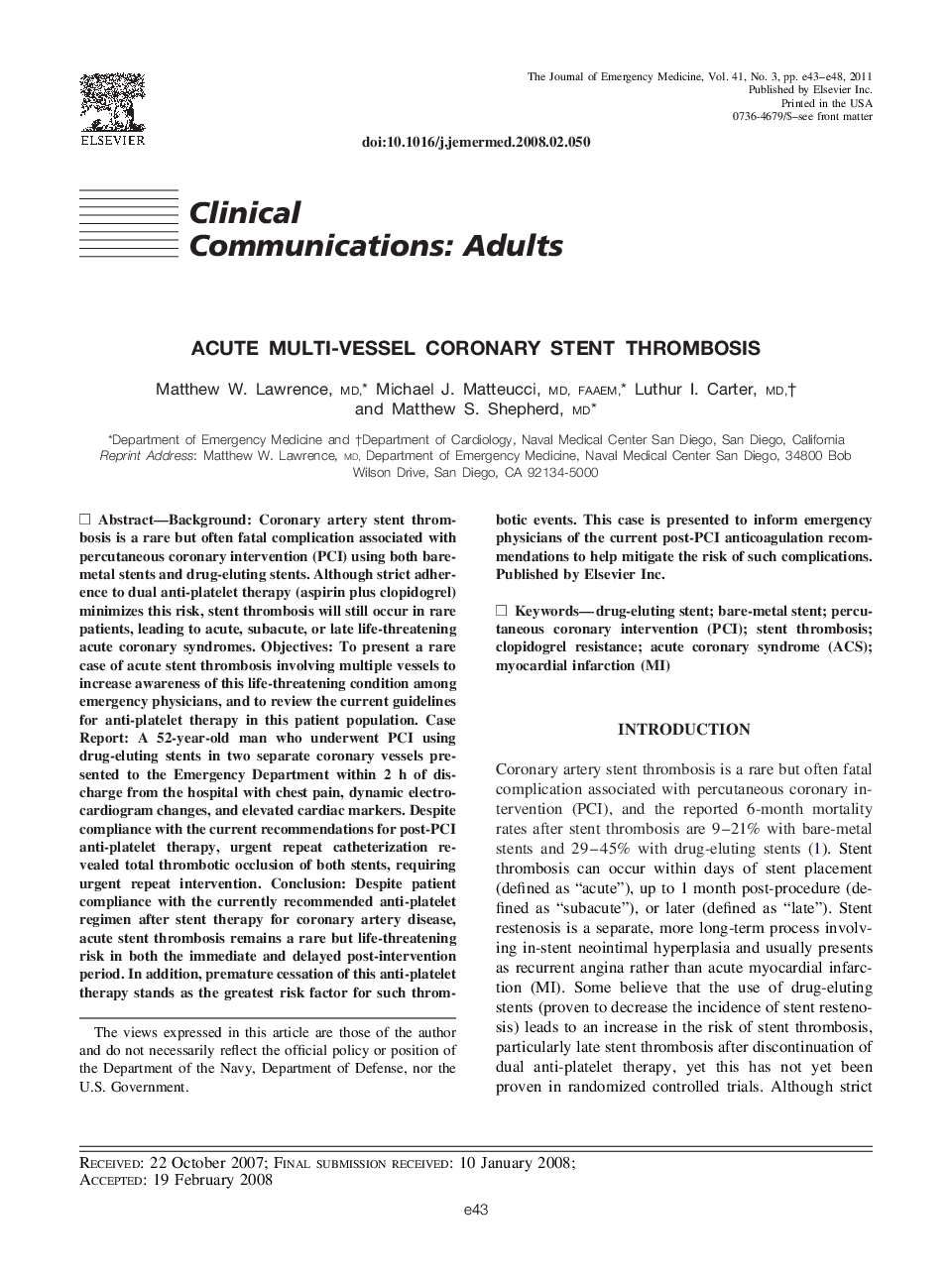| Article ID | Journal | Published Year | Pages | File Type |
|---|---|---|---|---|
| 3247878 | The Journal of Emergency Medicine | 2011 | 6 Pages |
Background: Coronary artery stent thrombosis is a rare but often fatal complication associated with percutaneous coronary intervention (PCI) using both bare-metal stents and drug-eluting stents. Although strict adherence to dual anti-platelet therapy (aspirin plus clopidogrel) minimizes this risk, stent thrombosis will still occur in rare patients, leading to acute, subacute, or late life-threatening acute coronary syndromes. Objectives: To present a rare case of acute stent thrombosis involving multiple vessels to increase awareness of this life-threatening condition among emergency physicians, and to review the current guidelines for anti-platelet therapy in this patient population. Case Report: A 52-year-old man who underwent PCI using drug-eluting stents in two separate coronary vessels presented to the Emergency Department within 2 h of discharge from the hospital with chest pain, dynamic electrocardiogram changes, and elevated cardiac markers. Despite compliance with the current recommendations for post-PCI anti-platelet therapy, urgent repeat catheterization revealed total thrombotic occlusion of both stents, requiring urgent repeat intervention. Conclusion: Despite patient compliance with the currently recommended anti-platelet regimen after stent therapy for coronary artery disease, acute stent thrombosis remains a rare but life-threatening risk in both the immediate and delayed post-intervention period. In addition, premature cessation of this anti-platelet therapy stands as the greatest risk factor for such thrombotic events. This case is presented to inform emergency physicians of the current post-PCI anticoagulation recommendations to help mitigate the risk of such complications.
